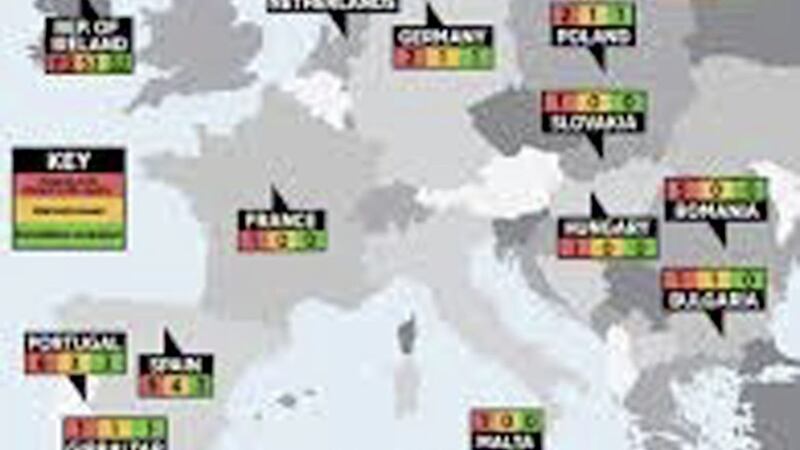Extraditing criminal suspects from the Republic could be in jeopardy after the British government - acting against the warnings of senior law enforcement officials - has said it will not be seeking to retain the European Arrest Warrant (EAW) in any future relationship with the European Union.
In a document setting out the government's approach to negotiations with the EU, the government said: "The UK is not seeking to participate in the European arrest warrant as part of the future relationship.
"The agreement should instead provide for fast-track extradition arrangements, based on the EU’s surrender agreement with Norway and Iceland which came into force in 2019, but with appropriate further safeguards for individuals beyond those in the European arrest warrant".
It is unlikely that the EU member states will agree to a Norway style 'surrender' treaty which involves agreement for a country to extradite their own citizens to the UK without any prior judging of the substance of the accusations.
Since 2004 the EAW has required members to transfer suspects or prisoners to other states to face trial or complete a sentence, speeding up extradition procedures.
Between September 2018 and August 2019, the PSNI made 38 EAW applications - 26 to the Republic and 12 to other EU states including Poland, Lithuania, Romania.
In the absence of an agreement with the EU police face having to fall back on the 1957 European Convention on Extradition. A slow and legally cumbersome process that was exploited by criminals crossing jurisdictions to evade prosecution in the past.
Germany has already said it will not extradite under the 1957 convention as have France, Austria, Bulgaria and Poland who have also indicated that they will refuse to extradite their citizens to the UK outside of the current EAW arrangements.








